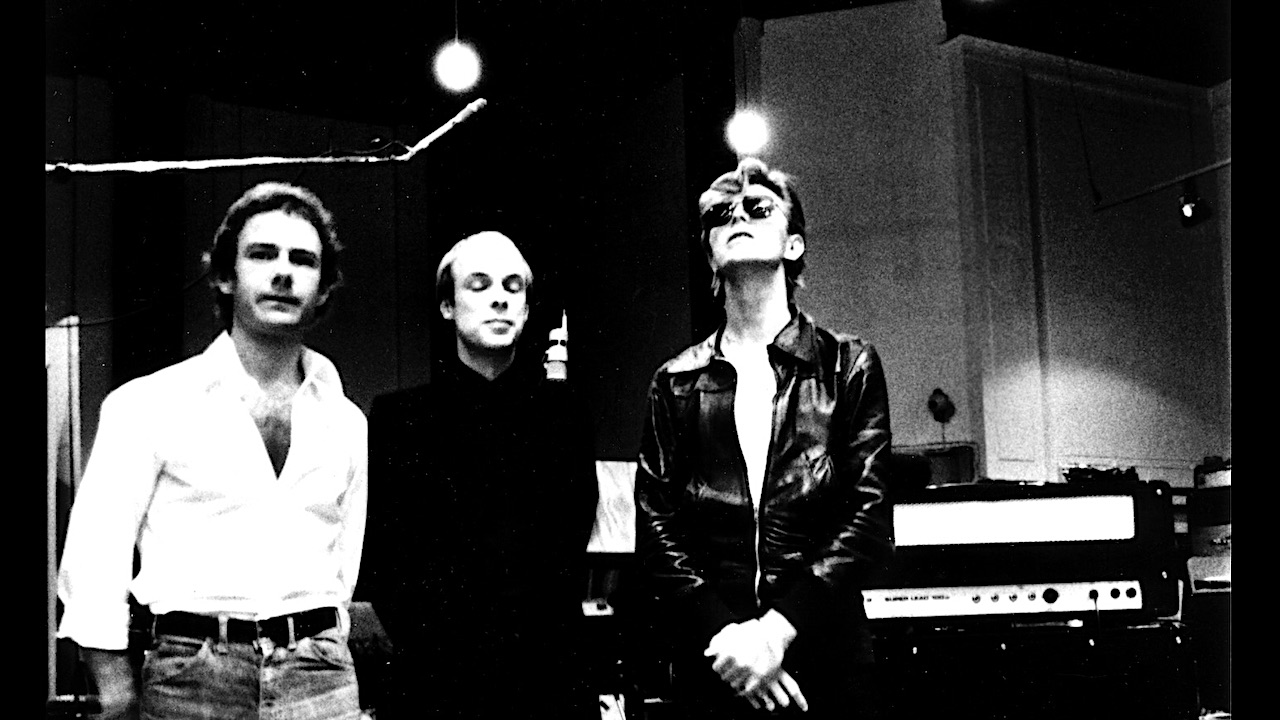
David Bowie's 1977 album "Heroes", the middle-section of his acclaimed Berlin Trilogy series which began with Low and culminates with Lodger, is considered one of the late singer/songwriter's finest and most influential albums.
Produced by Bowie's long-time collaborator Tony Visconti, the album was recorded with additional input from Brian Eno and King Crimson guitarist Robert Fripp, and in a new interview with US website qthemusic.com, Fripp recalls his memories of the experience.
Fripp was living in New York in the summer of 1977 when he received a phone call from Eno, who he'd first worked with on their 1973 album (No Pussyfooting), stating that he was in Berlin working with Bowie. After Eno passed the phone to Bowie, Fripp was asked if he would be interested in playing “some hairy rock’n’roll guitar?” on the record, to which the guitarist replied, “Well, I haven’t really played for three years, but if you’re prepared to take a risk, so will I.” A first-class ticket for a Lufthansa flight to Berlin was duly dispatched to Fripp, who then joined the album sessions at Hansa studio one week later.
Talking about the atmosphere and environment in which "Heroes" was made, Fripp draws parallels between London in the 1960s, New York in the last '70s/early '80s, and Berlin in the mid '70s, telling Q, “it's as if the spirit descends and a place, for whatever juxtaposition of reasons, has power.”
“And I think for artists a lot of it is that the normal formal structures of control for some reason lose their grip,” he muses. “So it might be urban poverty, urban crime, urban breakdown, or something, but it's a liminal in between zones. Berlin, for example, which was a great place for Bowie in the mid-1970s. Berlin was a terrifying place to be. I mean, the Heroes album at Hansa Studio, you looked out the window and there was an East German machine gun turret; which means that, for example, if the machine gunner wasn't a Bowie fan, he could've sprayed us! And this in-between-ness, where nothing is quite as fixed as it might normally be in safe and civilized times, it lights up on an artist's antennae.”
Recalling the collaboration in the studio, Fripp continues, “I flew to Berlin, and I believe in a total of three days, I played my guitar parts on Heroes, and it was lots of fun, lots of laughter, play, humor... It was great. And David showed me some interesting places in Berlin, too.”
Bowie would later ask Fripp if he would play guitar for him on the "Heroes" tour, but the guitarist declined. “I said, I've been on the road for six years, and I've just come off,” he remembers. “And I wasn't interested, certainly at that time, in going back again.”







